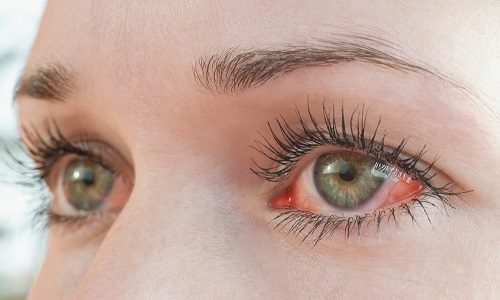
It’s not every day that a news story educates the public about the strong link between nutrition and ocular health. But it happened recently with the curious case of a British teen who survived for years on a diet centered on chips and crisps — or, as we like to call them in the U.S., French fries and Pringles. He rounded out his daily menu with white bread, sliced ham and sausages.
Bay Area ophthalmologist Mark Mandel, MD, believes this is the perfect cautionary tale for parents and kids alike. After a decade on this adolescent dream diet, the teen suffered substantial damage to his nervous system, including the optic nerve. He experienced partial hearing loss and nearly total loss of sight.
How Does Nutritional Optic Neuropathy Develop?
The clarity of your vision and health of your eyes are dependent on a variety of lifestyle habits. In the case of the teen, his levels of B12, vitamin D, copper, folic acid, magnesium and selenium had collapsed. This condition, known as nutritional optic neuropathy, is more often seen in places with famine, poverty and conflict, not in countries that deep-fry, process and wrap in paper their daily sustenance.
The last reported epidemic of nutritional optic neuropathy occurred in Cuba during the early 1990s, when a disintegrating economy limited healthy diet options for the general population.
Sometimes the condition develops when intestinal problems, changes resulting from bariatric surgery or the use of certain medications interfere with the proper absorption of nutrients. It can also happen when excessive alcohol consumption crowds out balanced meals, or even in the case of individuals who follow a very strict vegan diet.
Eye Nutrition, from A to B
From an early age most of us learn from our parents, or even a cartoon rabbit, that vitamin A is vital to eye health. B vitamins, along with iron and thiamine, are also essential. Thiamine deficiency can develop quickly, and impact eye movement and the optic nerve.
Non-starchy plant foods, such as fruits and leafy vegetables, are ideal sources of vitamin B. This eye-healthy vitamin can also be found in whole grains, eggs, dairy products, meat, nuts, seeds and legumes. Because many agronomists believe that overuse of farmland has resulted in depletion of nutrients in the soil and the produce grown there, daily vitamin supplements are also a good idea.
Bay Area ophthalmologist Mark Mandel, MD, reminds patients that nutrition plays a role in other aspects of eye health as well. Lack of nutrients can lead to early onset of cataracts or macular degeneration. And a poor diet has even wider health implications, as it correlates strongly with development of diabetes, heart disease, stroke and certain cancers.
If you would like to know more about ways to promote the health of your eyes, we encourage you to schedule a personal consultation with ophthalmologist Mark Mandel, MD. Contact Optima Eye by emailing us or calling 510-886-3937 today.


